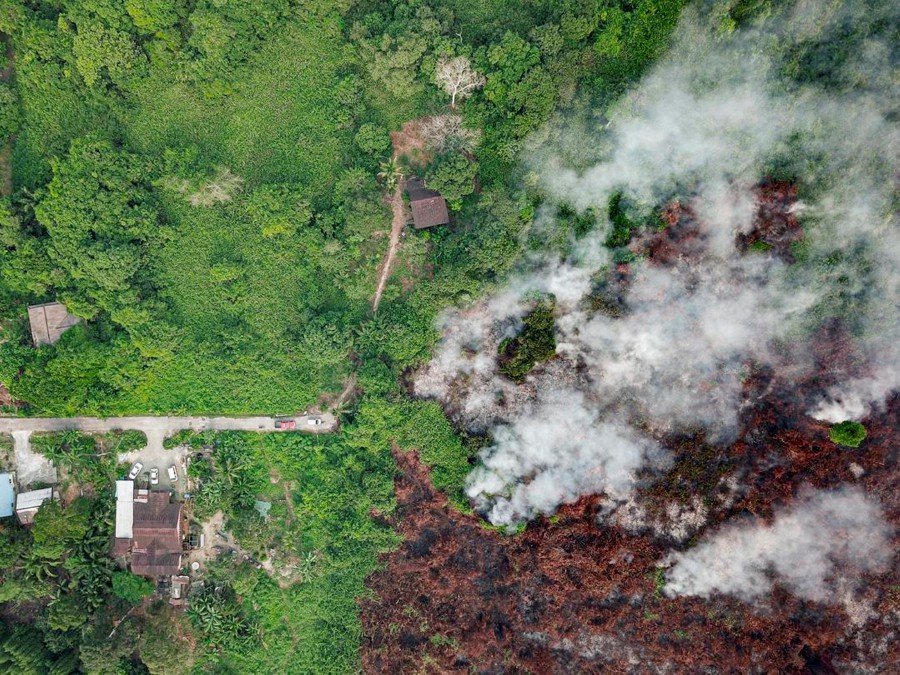NST Leader: Burning question
https://www.nst.com.my/opinion/leaders/2019/09/522181/nst-leader-burning-question

THANKS to haze, something abominable has happened. Kuching is now the world’s most polluted city in the world. When this Leader was going to press, Kuching was still enveloped in an air of acridity.
On Sunday, Bloomberg reported 4,000 hotspots in western and central parts of Indonesia. A day later, a BBC report quoting Indonesia’s national disaster agency showed the scale of damage: 328,724ha of land were burnt from January to August alone.
Hotspots are not just an Indonesian slash-and-burn problem. We, Malaysians, go further. We slash-burn-and-run. Hence the Selangor government’s timely land confiscation warning. Even in Indonesia, some hotspot dots have been connected to Malaysian and Singaporean companies.
At home, on Saturday, 10 hotspots were reported in Sabah and Sarawak, according to BBC. On the very same day there were 621 hotspots in Kalimantan.
If fire alerts — as reported by Global Forest Watch — are taken into account, the number is giddier. Between Sept 9 and Sept 16, there were 241 forest fire alerts, with the top three locations being Sarawak (90), Johor (66) and Sabah (34). For the same period in Indonesia, it was a monstrous 23,545.
What is the way out of this caustic conundrum? In the name of the mortal threat to the health of Southeast Asians, a group of professionals and activists called for a declaratory judgment against Indonesia in the New Straits Times Op-ed piece yesterday.
True, there is duty, a breach and harm, but the legal action itself comes built-in with a mortal problem. An action against a state in the International Court of Justice is no ordinary civil action. The state which is sued — Indonesia in this case — can simply refuse to submit to the ICJ.
The legal action will then be as dead as a door nail. Besides, there will be geopolitical hurt that may show up now and then, just like the haze. Haze and hurt make a bad mix.
A better way is to go the Singapore route: pass a law that mimics the island republic’s Transboundary Haze Pollution Act 2014, which enables regulators to prosecute individuals who cause air pollution thereby causing fires in neighbouring countries.
The World Resources Institute — a global research organisation — rightly called the transboundary law “a new way of doing business”. The moment the people behind the fires set foot on Singapore soil, they face the full force of the law.
The law’s bite extends to companies’ reputation as well. The criminal sanction provided for by the transboundary law would compel people to not do business with such companies. Singapore means business, so must Malaysia and Indonesia.
There is an Asean way, too. Dr Mohd Hazmi Mohd Rusli from the Faculty of Syariah and Law, Universiti Sains Islam Malaysia, says there might be an answer to the haze problem in Asean’s past.
In the first decade of 2000, the waters of the Straits of Malacca and Singapore were a playground for pirates. The maritime area was not unlike a war zone.
Compelled by the gravity of the situation, Indonesia, Malaysia and Singapore came together with a number of tripartite maritime safety and security measures that ended piracy for good. Would it work for haze? Well, that is the burning question.
